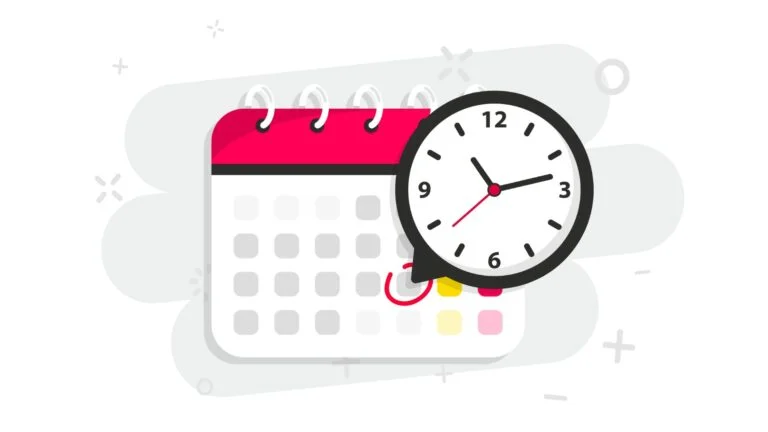For any small business, every minute and dollar count. The challenge lies in balancing a full workload, managing employees, and ensuring profitability without getting bogged down in administrative manual work. The solution is often simpler than you think: a robust Time Tracking Apps. It’s not just a tool for logging hours; it’s a strategic business asset that provides the visibility and control you need to thrive. Office Punch is one such solution, designed to help you streamline your operations and make data-driven decisions.
Time tracking apps have emerged as essential tools that help companies streamline operations, improve project management, and boost profitability. By implementing the right Time Tracking Software, small businesses can transform how they manage employee hours, track billable time, and generate accurate reports for better decision-making.
In today’s competitive business landscape, small businesses face the constant challenge of maximizing productivity while minimizing costs. Time tracking apps have emerged as essential tools that help companies streamline operations, improve project management, and boost profitability. By implementing the right Time Tracking apps, small businesses can transform how they manage employee hours, track billable time, and generate accurate reports for better decision-making.
The Hidden Costs of Poor Time Management
Small businesses often struggle with time management without realizing the true financial impact. When employees manually track their hours or rely on outdated systems, companies lose valuable resources through inaccurate records, missed billable hours, and inefficient workflow processes.
Manual work creates numerous problems that drain company resources. Employees spend precious minutes each day filling out paper timesheets or updating spreadsheets, time that could be better spent on productive tasks. These manual time entries are prone to errors, leading to payroll discrepancies and client billing issues that can damage business relationships.
The lack of detailed reports makes it impossible for management to identify productivity patterns or project costs accurately. Without proper time reports, businesses cannot determine which projects are profitable or which team members need additional support. This blind spot in performance tracking often results in:
- Overruns on client projects that eat into profit margins
- Difficulty justifying billing rates to clients without concrete data
- Inability to estimate future project timelines accurately
- Poor resource allocation across multiple projects
- Missed opportunities to identify and eliminate time-wasting activities

How Time Tracking Software Transforms Small Business Operations
Modern Time Tracking Apps provide comprehensive solutions that address these challenges while offering advanced features that were once available only to large corporations. These platforms integrate seamlessly with existing business tools, creating a unified system for managing employee time tracking and project oversight.
Streamlined Data Collection
Automatic time tracking eliminates the need for manual data entry while providing more accurate results. Desktop apps and mobile app versions allow employees to log their activity regardless of location, whether they’re working in the office or remotely. Browser extensions make it easy to track time directly from project management software or client communication tools.
Many solutions offer multiple tracking methods to suit different work styles. Timer-based tracking works well for focused tasks, while background monitoring automatically records time spent on various applications and websites. Some tools even capture screenshots at regular intervals to provide visual records of work completed. The precision extends down to seconds, ensuring every moment of productive work is captured and billable hours are maximized.
Enhanced Project Management Capabilities
Time tracking tools integrate directly with project management workflows, providing real-time visibility into project status and progress. Teams can monitor how much time is being spent on specific tasks, helping management identify bottlenecks before they impact deadlines. The team dashboard provides a centralized view where managers can see all ongoing projects, resource allocation, and performance metrics at a glance.
The integration capabilities extend to popular platforms like Slack, Quickbooks, and Zapier, creating a connected ecosystem where data flows seamlessly between different business tools. This connectivity reduces the administrative burden on teams while ensuring that all project details are captured accurately.
Improved Client Relationships
Detailed reports generated by time tracking systems provide transparency that clients appreciate. When businesses can show exactly how many hours were spent on specific deliverables, it builds trust and justifies billing rates. Invoices backed by comprehensive time logs are rarely disputed, leading to faster payment cycles and improved cash flow.
The ability to track billable hours with precision means businesses can capture revenue that might otherwise be lost. Many small businesses undercharge for their services because they cannot accurately measure the time invested in client projects. Time Tracking apps eliminates this guesswork.
Advanced Scheduling and Resource Management
Smart Schedule Optimization
Modern time tracking platforms go beyond simple time logging to include sophisticated schedule management capabilities. These tools help businesses optimize resource allocation by analyzing historical time data to predict future needs. The schedule features allow managers to assign tasks based on employee availability, skill sets, and workload capacity.
Auto-scheduling functionality uses artificial intelligence to suggest optimal task assignments and project timelines. By analyzing past performance data, these systems can predict how long specific tasks will take for different team members, enabling more accurate project planning and client commitments.
Real-Time Performance Monitoring
The team dashboard serves as a command center for business operations, displaying real-time information about ongoing projects, employee activity, and resource utilization. Managers can quickly identify when projects are falling behind schedule or when employees are approaching capacity limits.
Advanced analytics within the dashboard provide insights into productivity patterns, showing peak performance hours and identifying opportunities for process improvement. This level of visibility enables proactive management rather than reactive problem-solving.

Key Features That Drive Business Value
Comprehensive Reporting Systems
Modern time tracking platforms generate various types of reports that provide insights into different aspects of business operations. Payroll reports streamline the payment process by automatically calculating hours worked, overtime, and attendance patterns. Project reports show resource allocation and help identify areas where efficiency can be improved.
Management can access admin dashboard views that provide high-level summaries of team performance, while individual users can review their own activity patterns. These reporting capabilities support data-driven decision making at every level of the organization.
User-Friendly Interface Design
The best Time Tracking Apps feature intuitive UI designs that require minimal training for employees to adopt. Simple interfaces reduce resistance to new tools while ensuring accurate time entries from day one. Desktop versions typically offer more detailed functionality, while mobile apps focus on essential features for on-the-go tracking.
Flexible Time Entry Options
Different employees prefer different methods of time tracking. Some platforms offer timer functionality for real-time tracking, while others allow manual entries for completed work. Advanced features might include automatic detection of computer activity or integration with calendar systems to suggest time entries based on scheduled meetings.
Auto-capture functionality monitors computer usage in the background, automatically logging time spent on different applications and websites. This approach eliminates the need for employees to remember to start and stop timers while providing detailed activity records that can be reviewed and approved.
Integration Ecosystem
The ability to connect with other business tools multiplies the value of time tracking investments. Popular integrations include:
- Project management platforms for seamless task tracking
- Invoicing systems to automatically generate client bills
- Payroll software to streamline employee compensation
- Communication tools like Slack for team coordination
- Accounting software such as Quickbooks for financial tracking
Popular Time Tracking Solutions in the Market
Toggl and Toggl Track
Toggl remains one of the most recognized names in time tracking, offering both free and premium versions. Toggl Track provides robust project tracking capabilities with detailed analytics and team collaboration features. The platform works across desktop, mobile app, and browser environments. The auto-tracking features help capture every second of work time, while the team dashboard provides managers with comprehensive oversight of all ongoing projects.
Clockify
Clockify has gained popularity for its generous free tier that supports unlimited users and projects. The platform offers time tracking, scheduling, and basic reporting features that work well for small teams just starting with time tracking. The interface provides clear visibility into team performance and project progress.
Timely
Timely focuses on automatic time tracking, using artificial intelligence to categorize activities without requiring manual input. This approach reduces the administrative burden on employees while maintaining accurate records. The auto-capture technology works in the background, tracking every second of computer activity and organizing it into meaningful categories.
Everhour
Everhour integrates deeply with project management tools, making it easy for teams already using platforms like Asana or Trello to add time tracking functionality. The tool excels at project budgeting and resource planning, with schedule management features that help optimize team workload distribution.
TrackingTime, Timeular, and Jibble
These solutions offer unique approaches to time tracking, from physical tracking devices to advanced team scheduling features. Each platform brings different strengths that may appeal to specific business needs. The schedule optimization tools help managers balance workloads and ensure project deadlines are met consistently.
Connecteam
Connecteam combines time tracking with broader workforce management features, including scheduling, communication, and task management. This comprehensive approach works well for businesses looking to consolidate multiple tools. The team dashboard provides a unified view of all workforce activities, from attendance tracking to project progress monitoring.

Implementation Benefits Across Business Functions
Human Resources and Payroll
Time tracking systems simplify attendance management and payroll processing. Automated records eliminate disputes over hours worked while providing audit trails for compliance purposes. HR teams can easily generate reports for employee reviews and identify patterns in absence requests or overtime usage.
The integration with payroll systems reduces processing time and eliminates manual data entry errors. Some platforms even handle complex scheduling scenarios and can manage different pay rates for various types of work. Auto-calculation features ensure accuracy down to the second, eliminating rounding errors that can accumulate over time.
Finance and Accounting
Accurate time tracking provides the foundation for precise project costing and profitability analysis. Finance teams can calculate overhead costs more accurately and determine the true cost of delivering services to clients. This data supports better pricing decisions and helps identify the most profitable service offerings.
Invoice generation becomes automated when time tracking systems connect with accounting software. Detailed time logs support invoice line items, reducing client questions and speeding payment processing. The precision tracking capabilities ensure that every billable second is captured and invoiced appropriately.
Operations and Project Management
Operations managers gain real-time visibility into resource utilization across all projects. This insight enables better staffing decisions and helps prevent employee burnout by identifying overloaded team members. The ability to track project status in real-time helps managers intervene early when projects are at risk of missing deadlines.
Time tracking data also supports capacity planning, helping businesses determine when to hire additional staff or when to decline new projects due to resource constraints. The team dashboard provides instant visibility into current workload distribution and upcoming schedule conflicts.
Advanced Analytics and Optimization
Performance Pattern Recognition
Modern time tracking platforms use advanced analytics to identify performance patterns that might not be obvious through manual observation. By analyzing data collected over weeks or months, these systems can identify optimal working conditions, peak productivity hours, and factors that contribute to project success.
The auto-analysis features can detect trends such as which types of tasks take longer than estimated, which team members work most efficiently on specific project types, and what external factors influence productivity. This information enables businesses to optimize their operations for maximum efficiency.
Predictive Scheduling
Using historical time data, advanced platforms can predict future resource needs and suggest optimal project schedules. This capability helps businesses commit to realistic deadlines and avoid overcommitting resources. The predictive algorithms consider factors like employee availability, skill requirements, and historical performance data.
Auto-scheduling features can redistribute workload automatically when unexpected changes occur, ensuring that project deadlines remain achievable even when team members are unavailable or when project requirements change.
Maximizing Return on Investment
Choose the Right Platform
Selecting appropriate time tracking tools requires evaluating business needs against available features. Free time tracking apps work well for basic needs, but businesses with complex requirements may need premium solutions with advanced features and integrations.
Consider factors like the number of users, required integrations, mobile access needs, and reporting requirements. Linux compatibility, Kiosk mode for shared workstations, and browser extensions might be important depending on the work environment. The team dashboard capabilities and schedule management features should align with your operational complexity.
Ensure Proper Implementation
Successful time tracking implementation requires clear policies and employee training. Establish guidelines for when and how employees should track time, and provide adequate training on the chosen platform. Consider starting with a pilot group before rolling out company-wide.
Regular reviews of time tracking data help identify process improvements and ensure the system continues to meet business needs. Use the insights gained to refine workflows and eliminate inefficiencies. The auto-tracking features should be configured to match your business processes and compliance requirements.
Monitor and Optimize
Time tracking is most valuable when businesses actively use the data to make improvements. Regular analysis of time reports can reveal opportunities to increase efficiency, reduce costs, and improve client satisfaction. Set up regular reviews to assess team performance and project profitability.
Track key metrics like average time per task, project completion rates, and billable hour utilization. These metrics provide benchmarks for measuring improvement over time. The team dashboard should be customized to display the most relevant performance indicators for your business.
Why Choose Office Punch
Office Punch stands out in the competitive time tracking market by offering comprehensive solutions designed specifically for small business needs. Our platform combines user-friendly design with powerful features that support everything from basic time tracking to complex project management requirements.
With robust reporting capabilities, seamless integrations, and dedicated customer support, Office Punch helps businesses maximize their time tracking investment. Our scalable solutions grow with your business, ensuring long-term value from your technology investment. The auto-tracking capabilities capture every second of productive work, while our team dashboard provides the visibility managers need to optimize operations and drive profitability.
Conclusion
Investing in Time Tracking Software delivers measurable benefits that extend far beyond simple hour tracking. Small businesses that implement comprehensive time tracking solutions see improvements in productivity, client relationships, and profitability. The key lies in selecting the right platform and ensuring proper implementation across all business processes. With accurate data and powerful reporting tools, businesses can make informed decisions that drive sustainable growth and competitive advantage.